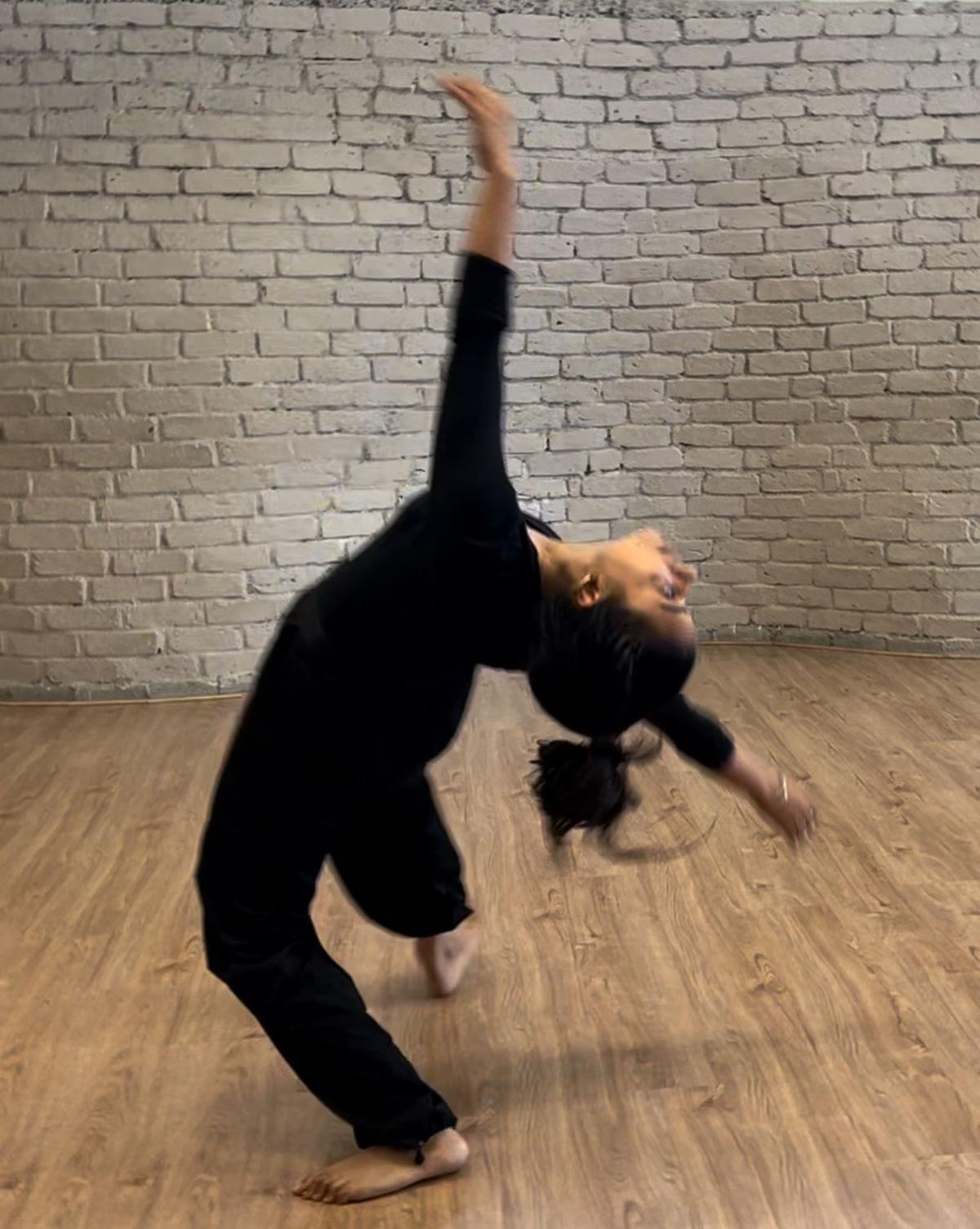
Sahiba Singh and stills from her dance theatre
| Photo Credit: Special Arrangement
Flux School of Arts will premier its 14th production, Sea’s Fire. Sahiba Singh, the dancer, choreographer and director, describes it as a dance theatre performance, exploring the devastation of war. “It interrogates our role as spectators through dance and movement. Navigating the ideas of home, loss, grief, violence, identity, apathy and accountability, Sea’s Fire is a passionate, humanistic call for help. At the heart of our work, we carry the loss of innocence of the many children of Gaza whose voices have been lost.”
The title Sea’s Fire is a pun on ceasefire, says Sahiba, who founded Flux in 2019. “I was looking at images and videos on social media about children caught in the crossfire of war. While there are political differences between nations and wars, children need to be kept out of it. As adults, we need to be responsible about wars.”

Children who grow up in strife torn areas, Sahiba says, will grow up with a dysregulated nervous system and anger issues. “This is only going to perpetuate the cycle of abuse. Children will not understand what is happening nor rationalise the happenings and the horrors they face today, but it might lead to them being filled with fear, anxiety and distrust.”
Sea’s Fire is primarily from the perspective of children, Sahiba says. “They should be kept out of conflict, irrespective of what our political stands are.” Sea’s Fire is an original work, with a cast of Sahiba’s students from her contemporary dance course, The X-Sense dance programme.
“Post their training, we go into a three-month production work, which is devised and we come up with an original work,” says 38-year-old Sahiba, who has been practicing contemporary dance for over two decades.
“My aim is to use art both for personal and systemic change. I also believe art is meant to comfort the disturbed and disturb the comfortable. Hence, art has a therapeutic and activist side to it. If we can use that as a medium of dialogue or as a conversation starter about issues that impact us negatively or positively, it can lead to a ripple effect, which may lead to a scope for change.”
Some of Sahiba’s previous productions have been about the climate crisis and wild woman archetype. “It has always been a specific topic that we work on. I use dance theatre as both dance and theatre are expressive arts. We can express ourselves through our bodies, expressions and voice with these disciplines.”

Dance theatre, Sahiba says, is not an intellectual space, as much as a visceral, feeling-based intuitive space. “It is a space where people can feel rather than try and make sense of it. That is the beauty of art, which is emotion based, and what we aim to do with our productions.“
Dance theatre production, Sahiba says, is different from a folk or a traditional theatre performance. “It is not so much about dance but about movement. We tap into our bodies and let it express itself in an exaggerated way. We do not follow a structure like a classical dance. Hence, dance theatre becomes abstract, is open to interpretations and has room for freedom in the way we perform it.
Sea’s Fire, is an hour long performance, without dialogue. “As it is a current political issue, it is based on expression of movement done to music compiled by us.”
Sea’s Fire will be staged on September 28 at Medai Theatre at 4pm and 6pm. Tickets on BookMyShow.
Published – September 24, 2024 07:02 am IST
